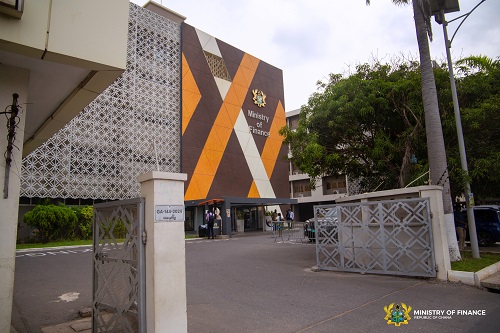MDAs, corruption and productivity

The Ministries, Departments and Agencies (MDAs) have all been set up by law to play a role in the history of this country and help promote the country’s developmental agenda.
Their roles are in the form of political, social and economic efforts to make life better for people in the country. Politically, they are setup to play a role in the implementation of government policies so that governance will take a smooth shape to achieve the aims and objectives for which government is instituted.
SOCIAL FRONT
On the social front, they play a useful role in the implementation of education, health, agriculture and other areas, so as to bring about full fulfillment for everyone in the country. Economically, productivity cannot rise with the private sector if nothing is done in the public sector to partner with the private sector for the good of the entire country.
The private sector has a crucial role to play in ensuring that the country as a whole is able to achieve its objectives in all dimensions of development. Indeed, the private sector is said to be the engine of growth, so when encouraged and facilitated in the right way, it will be able to bring about the needed result to fashion growth and development. The public sector, for its part, is expected to implement governmental policies in the most appropriate manner and be able to coordinate all matters in the public and private sectors of the economy.
GOOD COLLABORATION
There must always be good collaboration between the public sector through the MDAs so that the desired results will be achieved for the country as a whole. These MDAs are indeed expected to be effective and, in some cases, make the desired profit and even pay dividends to the national coffers.
Unfortunately, many of the MDAs are not effective because their practices as agencies of the state reflect corruption and other negative tendencies that do not augur well for the country. Many departments and agencies, for example, are unable to pay dividends because of great inefficiency on their part, resulting in them continuously demanding money from the central government while they themselves are unable to cut down on their corrupt practices and make money for the country.
IMPLEMENTATION OF GOVT POLICIES
The Ministries are not expected to make profits but to implement government policies in a manner that will ensure effectiveness and efficiency on all fronts. When this is done efficiently, waste will be avoided, and the government will not have to continue to overspend resources on them.
In the case of many of the Departments and Agencies, some level of profit is expected to be made so that their operations will not continue to constitute a total drain on the state’s coffers.
AGENCIES OF THE MINISTRIES
Also, there are many Agencies that have been equipped to operate profitably and supplement the efforts of the central government so that productivity on the whole will be very high and become satisfactory for the country.
Many of the Agencies in the form of public entities have Chief Executives as well as Boards of Directors to help shape up activities, yet some of them think that their appointments have been made for them to embezzle state funds and waste financial resources that could otherwise have been utilised to bring about productivity.
DESIRED PRODUCTIVITY
The Chief Executives should know that they are not appointed for the sake of mere appointment but to work hard and, in some cases, sacrifice themselves to bring about the desired productivity. This is an issue that must be taken seriously.
When public resources are used by Chief Executives to the neglect of other members of staff, this does not help to move the country forward.
PUBLIC ENTITIES
Some of the public entities are doing very well. Unfortunately, many others are total disappointments because the appointed Chief Executives discriminate among staff and result in the victimisation of members of staff who refuse to embark upon dishonest lives.
Again, many of these Chief Executives buy cars and valuable gifts for Board members with the aim of influencing them into cohesion and not pointing out any wrongdoing in the public entity. The same thing is usually done by these corrupt Chief Executives for their heads of finance as well as procurement and other influential departments, all in a bid to frustrate them and give these corrupt Chief Executives their way and carry out their dirty tricks.
It is unfortunate that these things keep happening and recurring, but until we put a stop to all of them, not much can be achieved for the public sector.
ROLE OF SIGA
Fortunately, we have the State Interest and Governance Authority (SIGA), which has been setup for the purpose of effectively checking the inefficiencies and corrupt practices of the Chief Executives of public organisations and some of their corrupt Board members.
Not quite long ago, we heard the Director General of SIGA refer to this negative tendency and make an announcement to the effect that non-performing Chief Executives and Board members will have to leave their organisations to allow better things to happen.
COMPROMISED POSITIONS
He again pointed out that if Chief Executives buy vehicles and other things for the personal use of their Board members, then these Board members have compromised their positions and are, therefore, not fit enough to run these public organisations.
Many of the socioeconomic problems being encountered in this country stem from this unfortunate situation, but the blame is always put on the central government.
It is expected that SIGA will be given more powers to bite and bring about greater efficiency in the public sector. This is what we need as a country to move forward.
Email address/whatsApp number of author:
Pradmat201@gmail.com (0553318911)
BY DR KOFI AMPONSAH-BEDIAKO













